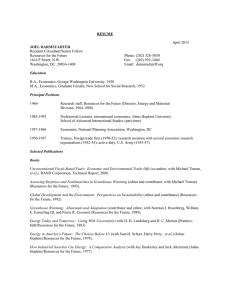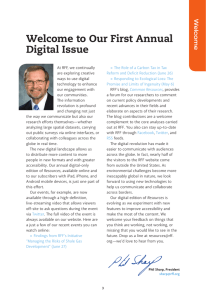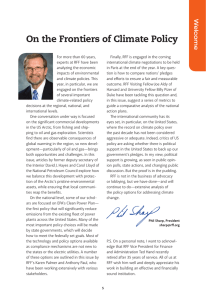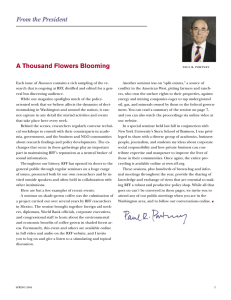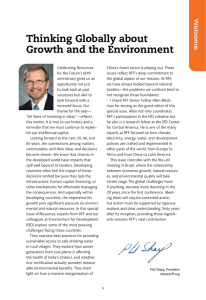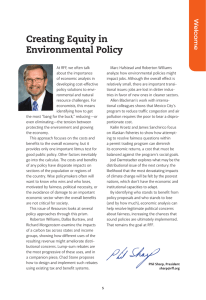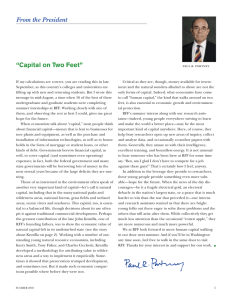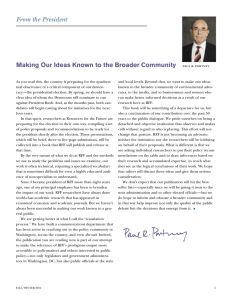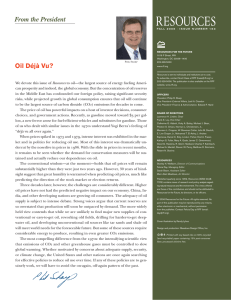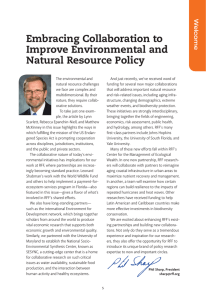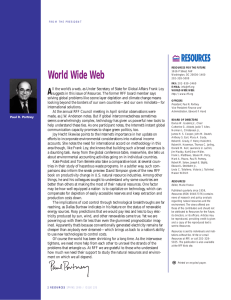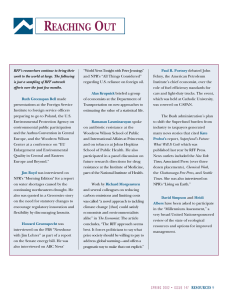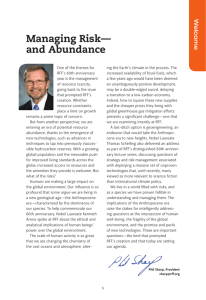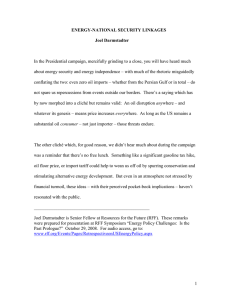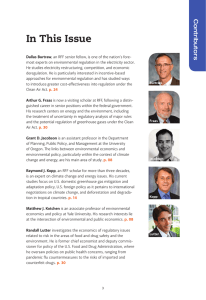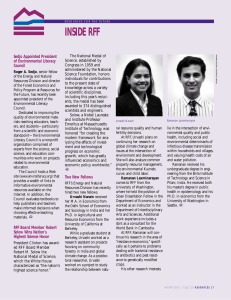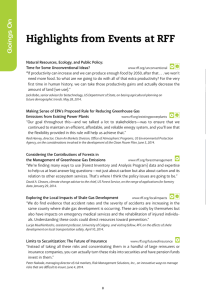Pushing the Boundaries of Environmental Economics W elcome
advertisement
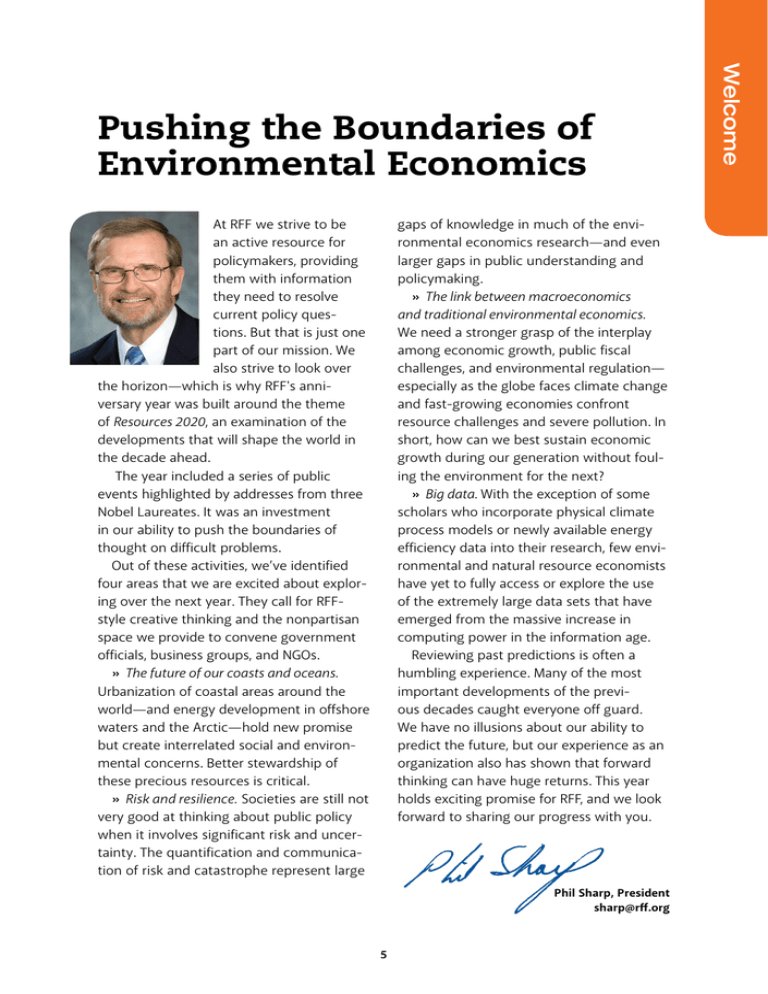
At RFF we strive to be an active resource for policymakers, providing them with information they need to resolve current policy questions. But that is just one part of our mission. We also strive to look over the horizon—which is why RFF's anniversary year was built around the theme of Resources 2020, an examination of the developments that will shape the world in the decade ahead. The year included a series of public events highlighted by addresses from three Nobel Laureates. It was an investment in our ability to push the boundaries of thought on difficult problems. Out of these activities, we’ve identified four areas that we are excited about exploring over the next year. They call for RFFstyle creative thinking and the nonpartisan space we provide to convene government officials, business groups, and NGOs. »» The future of our coasts and oceans. Urbanization of coastal areas around the world—and energy development in offshore waters and the Arctic—hold new promise but create interrelated social and environmental concerns. Better stewardship of these precious resources is critical. »» Risk and resilience. Societies are still not very good at thinking about public policy when it involves significant risk and uncertainty. The quantification and communication of risk and catastrophe represent large gaps of knowledge in much of the environmental economics research—and even larger gaps in public understanding and policymaking. »» The link between macroeconomics and traditional environmental economics. We need a stronger grasp of the interplay among economic growth, public fiscal challenges, and environmental regulation— especially as the globe faces climate change and fast-growing economies confront resource challenges and severe pollution. In short, how can we best sustain economic growth during our generation without fouling the environment for the next? »» Big data. With the exception of some scholars who incorporate physical climate process models or newly available energy efficiency data into their research, few environmental and natural resource economists have yet to fully access or explore the use of the extremely large data sets that have emerged from the massive increase in computing power in the information age. Reviewing past predictions is often a humbling experience. Many of the most important developments of the previous decades caught everyone off guard. We have no illusions about our ability to predict the future, but our experience as an organization also has shown that forward thinking can have huge returns. This year holds exciting promise for RFF, and we look forward to sharing our progress with you. Phil Sharp, President sharp@rff.org 5 Welcome Pushing the Boundaries of Environmental Economics




